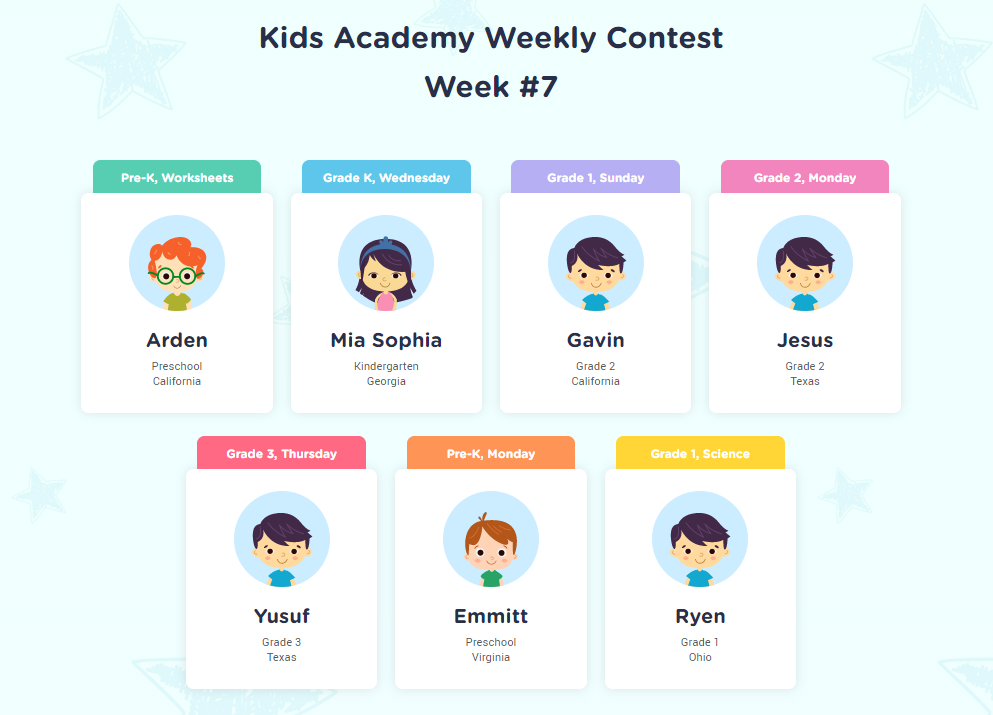Rhyme recognition Worksheets for Kids
7 filtered results
-
From - To


Baa Baa Black Sheep Printable
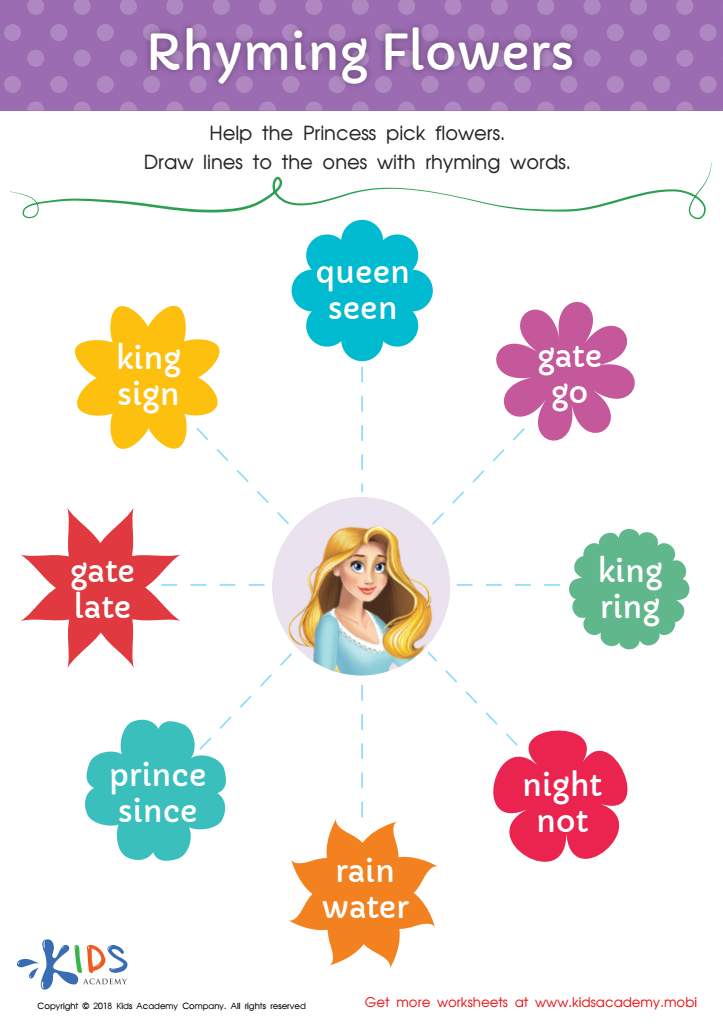

Rhyming Flowers Worksheet
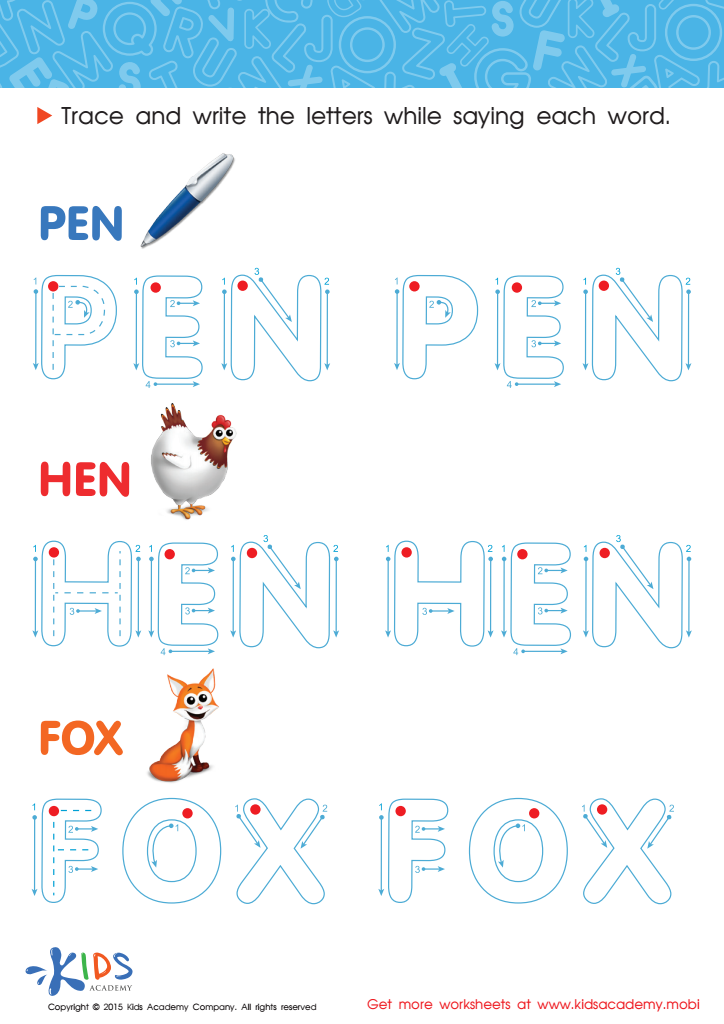

A Pen, a Hen and a Fox Spelling Worksheet
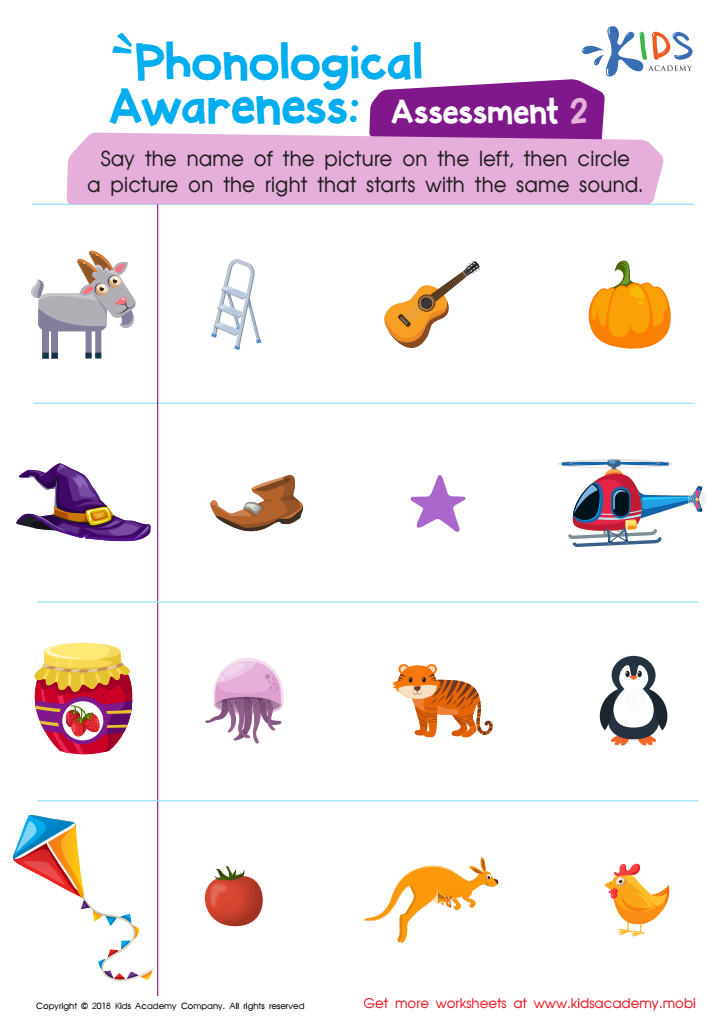

Phonological Awareness: Assessment 2 Worksheet
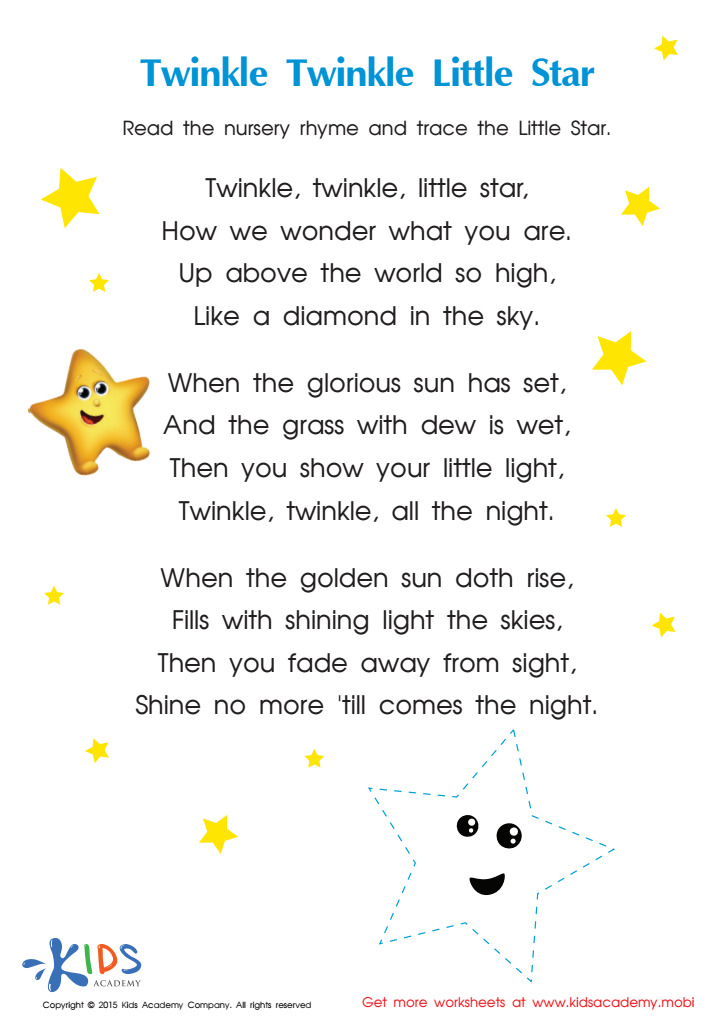

Nursery Rhymes: Twinkle Little Star Worksheet
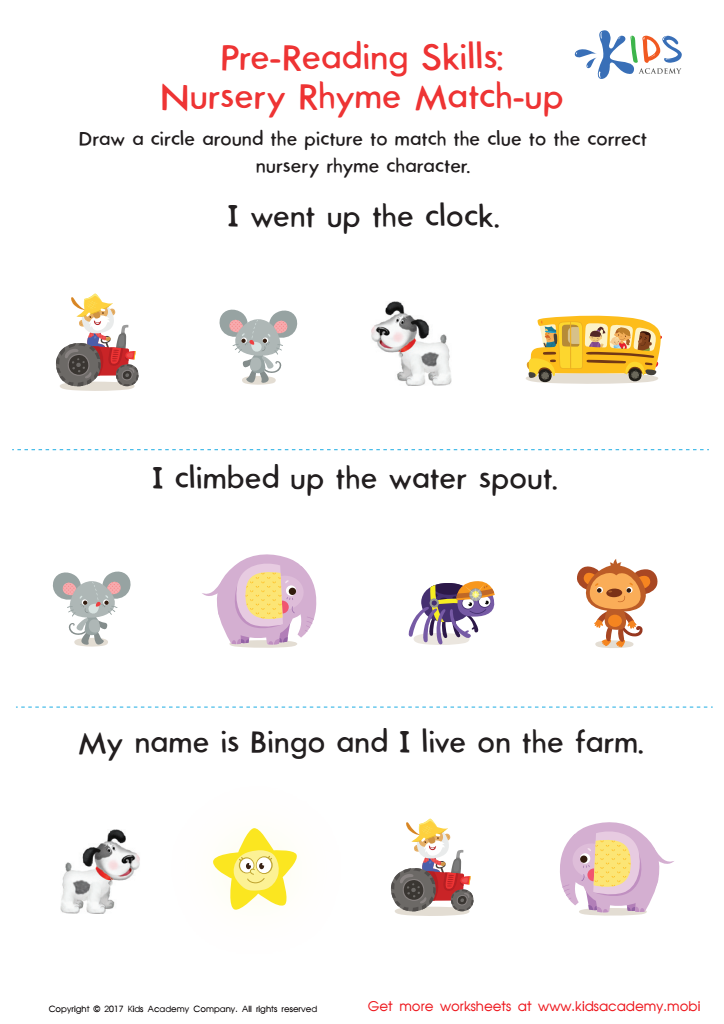

Nursery Rhyme Match–Up Worksheet
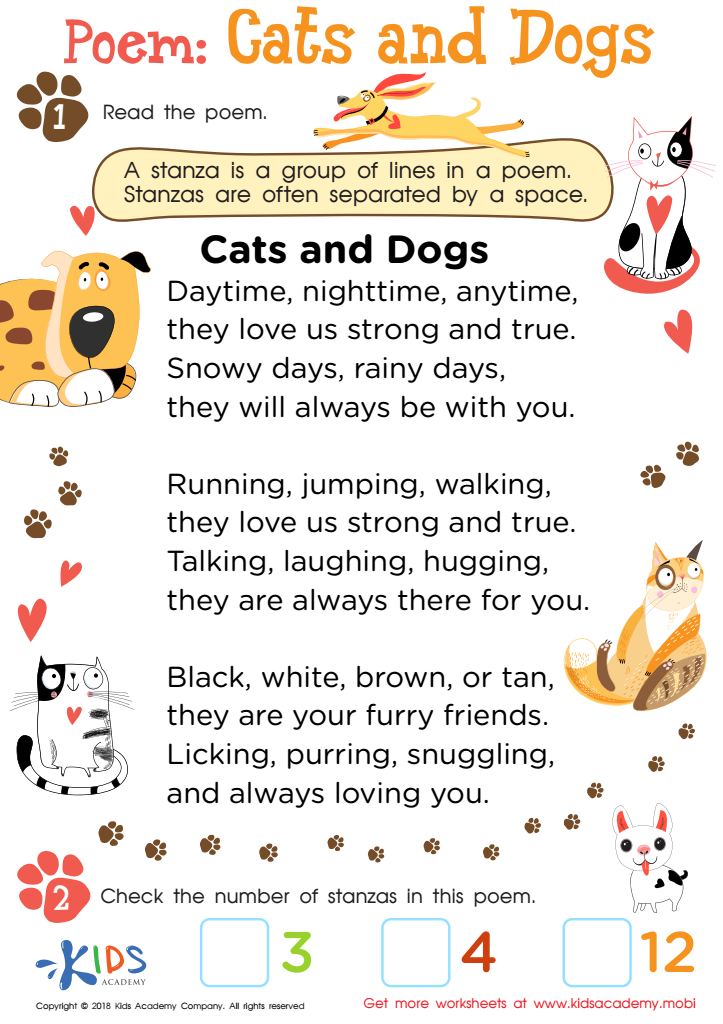

Poem: Cats and Dogs Worksheet
Question/Answer
Why is the Rhyme recognition skill important for Preschool students?
Rhyme recognition is important for preschool students because it supports their early reading and phonological awareness skills. It helps them understand and predict language patterns, enhances vocabulary, and improves memory and auditory discrimination. Recognizing rhymes prepares children for learning to read and write by familiarizing them with the sounds within words, crucial for decoding and spelling.
How does the mastery of the Rhyme recognition skill affect a student's performance at an early age?
Mastery of the rhyme recognition skill at an early age significantly boosts a student's literacy development. It enhances phonological awareness, a critical precursor to successful reading and spelling. By recognizing and generating rhymes, children develop an understanding of sound patterns and word structures, which facilitates decoding, memory for new words, and ultimately, reading fluency and comprehension.
How to test a Preschool student’s Rhyme recognition skills?
To test a preschool student's rhyme recognition skills, present pairs of words and ask the child to identify if they rhyme or not. Alternatively, recite a list of words and have the student pick out or name another word that rhymes with each. Both methods assess the child's ability to recognize and produce rhyming sounds.

 Assign to the classroom
Assign to the classroom




